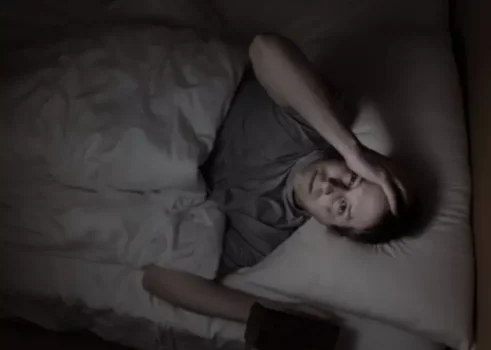
Motivation plays a major role in addiction recovery, considering the rates of relapse. Sometimes, it can be tricky to tell if you’re experiencing alcohol brain fog or something else. Alcohol brain fog often happens after drinking, and it usually clears up after a few days. Things like trouble remembering things, difficulty focusing, and feeling mentally fuzzy are common with alcohol brain fog. Alcohol brain fog isn’t a medical term, but it’s a good way to describe how alcohol can sometimes affect our brains.
- Individuals with alcohol use disorder often show a reduction in the volume of their prefrontal cortex, which directly correlates with increased impulsivity and emotional instability.
- Brain fog does not have an official test so your healthcare provider could help from there.
- Another way to help improve alcohol fog or any kind of brain fog is by taking brain health supplements.
- Things like remembering things, concentrating, and making decisions can become harder.
Mental Health Support:

‘Brain fog’ is a term many use to describe a range of cognitive difficulties, including problems marijuana addiction with concentration, memory, and decision-making. These chemical changes increase susceptibility to depression, making it more likely for individuals with heavy drinking habits to develop mental health issues. Studies reveal that heavy drinkers experience much more signs of depression and anxiety, highlighting the powerful connection between alcohol-induced brain changes and emotional health. Alcohol overstimulates dopamine pathways, creating short-term euphoria but over time depleting this system, which contributes to feelings of anhedonia and depression.

Greater Boston Addiction Centers
We’re a neuroscience-backed app that has helped millions of people reduce their alcohol consumption and improve their cognitive functioning. In these cases, how quickly brain fog goes away depends on several factors, such as the severity of alcohol misuse, how long we’ve been drinking, and our overall health status. While brain fog sometimes goes away on its own within a few days or weeks after quitting drinking, it can persist for extended periods for some alcohol brain fog people, particularly those with severe alcohol misuse.
- Alcohol can also lower blood sugar levels and deplete essential nutrients, contributing to cognitive impairment.
- They can help understand what’s going on and offer support for improving your brain health.
- Try our free 3-minute quiz and get a personalized plan and free trial to see how it will work for you.
- To help retain specific memories, keep the information active in your memory; for instance, share it in conversation whenever possible, record it for future reference, and review related photographs.
How Common is Alcohol Brain Fog?
Alcohol brain fog is just as common, and it can be devastating for the recovery process. If you think you or someone you know may be struggling with alcohol addiction, it is vital to seek professional help as soon as possible. Take note that chronic alcohol misuse can also lead to other health problems, such as liver disease and heart disease. It can be caused by a number of different factors, including alcohol addiction.
- We’ve partnered with C60 Power, known for its 99.99% pure Carbon 60 products, to create your go-to guide for fighting brain fog.
- The most common symptom of ALS is muscle weakness which often leads to paralysis and eventual death.
- By learning healthy coping mechanisms and developing effective strategies, individuals can navigate the challenges of daily life while maintaining their sobriety.
- Any brain that’s been the victim of extended substance abuse certainly couldn’t be harmed by a memory or concentration exercise.
- Brain fog is a common symptom of alcohol withdrawal that can occur after quitting alcohol.
- However, a common cause many run into is having brain fog after drinking due to how alcohol affects the brain and central nervous system.
You may be covered by insurance for addiction treatment.
- The symptoms of brain fog during alcohol withdrawal can vary from person to person.
- It is important to remember that the detox process is highly individualized, and the experience can differ from person to person.
- This can make it difficult to concentrate, remember names, or focus, and you may feel mentally fatigued.
- It’s unclear whether the drugs contributed to these problems or whether these side effects were linked with a preexisting psychiatric disorder, the researchers say.
- Alcohol increases the sedative effects of the neurotransmitter GABA (gamma-aminobutyric acid), which blocks certain signals from the central nervous system.
- Alcohol-induced brain fog lasts considerably longer when there is a history of alcoholism or another mental health issue and to treat it.
Sometimes, alcohol brain fog can also lead to confusion and disorientation. You might feel a little lost or unsure of where you are, even in familiar places. Dehydration can affect cognitive impairment and make it harder to think clearly.

Sleep Disruptions
Academic performance, job abilities, and social functioning can all be affected by memory and attention issues caused by alcohol. Their findings, recently published in Science Advances, demonstrates the significant role of cholinergic interneurons (CINs) in this process. Overall, alcohol can make it harder to understand, reason, and learn.
Many people who drink alcohol https://ecosoberhouse.com/ experience brain fog, and it can be quite debilitating. Fortunately, there are ways to get rid of brain fog after drinking. Exercise increases blood flow to the brain and promotes neuroplasticity. By incorporating physical activity into your daily routine, whether it’s a brisk walk, yoga, or even dancing, you can enhance cognitive functioning and alleviate brain fog. Relapse prevention programs focus on empowering individuals with tools and techniques to deal with triggers, cravings, and high-risk situations. By learning healthy coping mechanisms and developing effective strategies, individuals can navigate the challenges of daily life while maintaining their sobriety.

Replenishing your electrolytes with sports drinks or electrolyte tablets can also be helpful. It might feel hard to stick with a task or keep your thoughts straight. Little things, like where you put your keys, might slip your mind more easily.


Leave A Comment